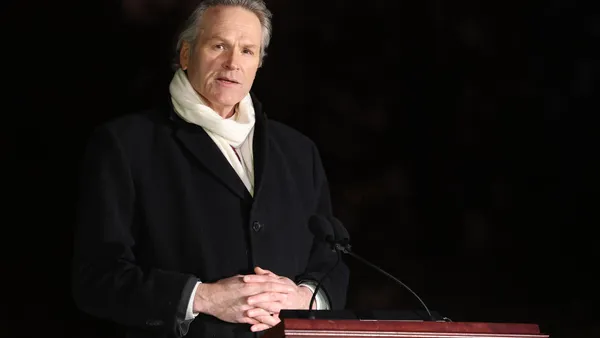ALEXANDRIA, Va. — While the number of students needing special education services is expected to increase over the next few years, the number of special educators and specialized instructional support personnel are expected to decrease, according to speakers at Monday's Special Education Legislative Summit, sponsored by the Council of Administrators of Special Education and Council for Exceptional Children.
"When you look at the trajectory between now and up to 2025 and the potential numbers, the distance between supply and demand is horrific," said Laurie VanderPloeg, a panelist and associate executive director for professional affairs at the Council for Exceptional Children. VanderPloeg served as director of the U.S. Department of Education's Office for Special Education Programs during the Trump administration.
Kaitlyn Brennan, policy advisor for the Higher Education Consortium of Special Education, told the summit's 250 attendees that by the 2025-26 school year, a teacher shortfall of 200,000 is expected. Citing Bureau of Labor and Statistics figures, Brennan said that between 2020 and 2030, some 37,600 new special education teachers will be needed to serve students with disabilities.
Over the past 10 years, special education rolls have swelled by 800,000 students, Brennan said. The disconnect between qualified teachers and students needing services raises concerns that students wouldn't get the individualized supports required by the Individuals with Disabilities Education Act, she said.
The data about educator shortages is "very, very, very overwhelming," VanderPloeg said. "It is going to require an all-hands-on deck for us to be able to get there," she said.
What is needed, the panelists said, is more funding at federal, state and local levels to offer competitive pay for special educators as well as speech therapists and other specialized instruction personnel, also known as related service providers.
Also needed are programs aimed at recruiting and retaining educators. Examples of promising practices cited by panelists include grow-your-own, quality professional development, and policies that allow portability of teaching credentials between states.
Summit attendee Shannon Neeley suggested districts shouldn't overlook the potential of substitutes. Neeley was a substitute teacher in a special education classroom in Utah's Ogden School District when she realized she wanted to go into teaching full time. She said she really enjoys working with students and using data to track students' progress to help students reach goals. She said she even likes completing the required special education paperwork.
Neeley is currently enrolled in a teacher preparation program at Weber State University, in Ogden, Utah, and expects to graduate in 2023 with a special education teaching degree.
"Substituting is an awesome opportunity for people if they think they want to go into education," Neeley said. For school districts, it's a chance to recruit teachers, she said.
Correction: The Special Education Legislative Summit is a joint venture between the Council for Exceptional Children and Council of Administrators of Special Education. We have updated our article to reflect this.













